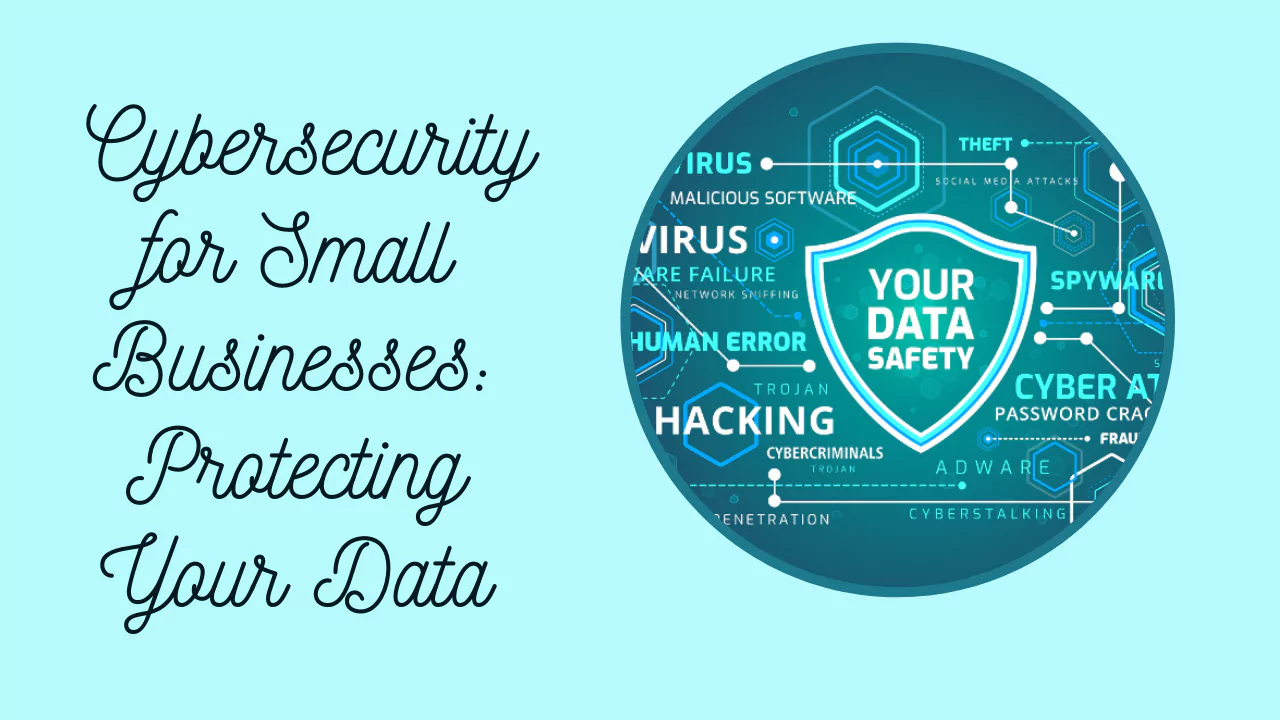Cybersecurity for Small Businesses In the moment’s connected world, small businesses are decreasingly being targeted by cyber pitfalls. These attacks can lead to fiscal loss, reputational damage, and indeed business checks. thus, it’s important for small businesses to prioritize cybersecurity measures to cover their data and operations. In this composition, we’ll look at comprehensive cybersecurity strategies suitable for small businesses, fastening on practical and cost-effective approaches to guarding specialized means their number.
Protect information computers and networks from cyber attacks. Keep it clean: Having the latest security software web browser and operating system is the best protection against viruses malware and other online threats. Configure antivirus software to run a scan after every update.
1 Understand the trouble with geography
Before enforcing cyber security measures, it’s essential to understand the nature of cyber pitfalls. Small businesses aren’t vulnerable to cyber attacks and in some cases are indeed more vulnerable due to limited coffers and moxie. Common pitfalls include phishing, ransomware, malware, and social engineering. Understanding these pitfalls allows businesses to develop targeted defenses.
2. Perform a threat assessment
threat assessment is an abecedarian step in establishing an effective cybersecurity frame. This involves relating and assessing implicit vulnerabilities, the liability of pitfalls, and the implicit impact they could have on the business. By prioritizing pitfalls grounded on inflexibility, small businesses can allocate coffers effectively.
3. Hand education and training
mortal error is one of the leading causes of cybersecurity breaches. Small businesses should invest in regular training programs to educate workers about safe online practices, fetching phishing attempts, and understanding the significance of strong watchwords. This education empowers workers to be the first line of defense against cyber pitfalls.
4. Enforcing Access Controls
confining access to sensitive data is pivotal in precluding unauthorized access. Small businesses should employ measures like part-grounded access controls( RBAC) and multi-factor authentication( MFA) to ensure that only the authorized labor force can pierce critical information.
5. Secure network structure
A secure network is the backbone of any cybersecurity strategy. Small businesses need to emplace firewalls, intrusion discovery systems( IDS), and virtual private networks( VPNs) to protect their networks from external pitfalls. Regularly streamlining and doctoring software and firmware is also important to maintain a secure network terrain.
6. Back up data regularly
Data loss can be disastrous for a small business. Regular data backups, both locally and in the pall, ensure that indeed in the event of a successful cyber attack, critical information can be restored without significant dislocation.
7. Incident response plan
No matter how robust the cybersecurity strategy is, breaches can still be. Having an easily defined incident response plan is essential to minimize damage and time-out. This plan must describe the conduct to be taken when a breach is detected, including communication protocols, constraint procedures, and recovery strategies.
8. Supplier and force chain operation
Small businesses frequently calculate on numerous different suppliers and mates. still, these third parties can also pose cybersecurity pitfalls. It’s essential to review and cover merchandisers’ security measures and establish clear contractual scores regarding data protection.

9. Misbehave with data protection regulations
Compliance with data protection laws, similar to the General Data Protection Regulation( GDPR) or the Health Insurance Portability and Responsibility Act( HIPAA), is critical to maintaining client trust and avoiding legal penalties. Small businesses should familiarize themselves with the applicable regulations and ensure their operations are biddable.
10. Continuously cover and acclimatize
Cyber pitfalls are constantly evolving, so small businesses must stay watchful and acclimate their cybersecurity measures consequently. enforcing nonstop monitoring through security information and event operation( SIEM) systems and staying streamlined on arising pitfalls is essential for maintaining a robust cybersecurity posture.
Conclusion
Investing in cybersecurity isn’t only a protective measure but also a strategic business decision. By securing their digital means, small businesses can inseminate trust in their guests, cover their character, and ensure their long-term viability in a decreasingly digitized business. Through a comprehensive and visionary cybersecurity strategy, small businesses can confidently navigate the digital geography, fastening growth and invention while keeping their data secure.
